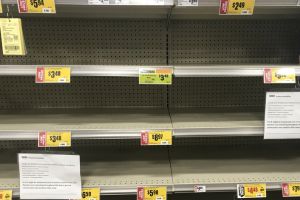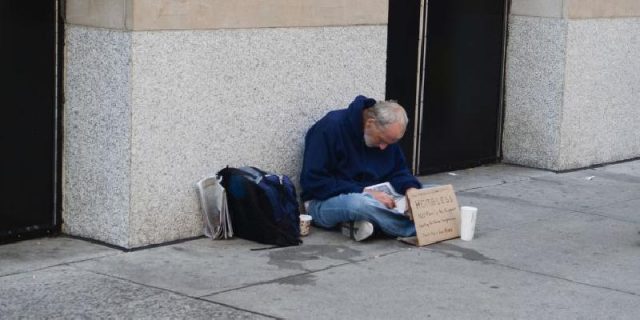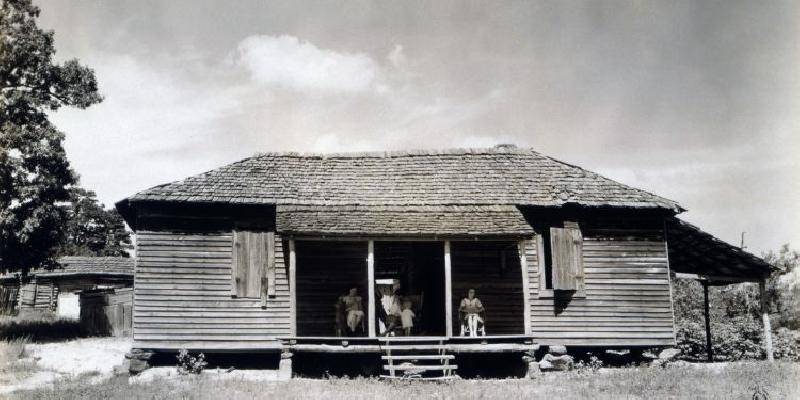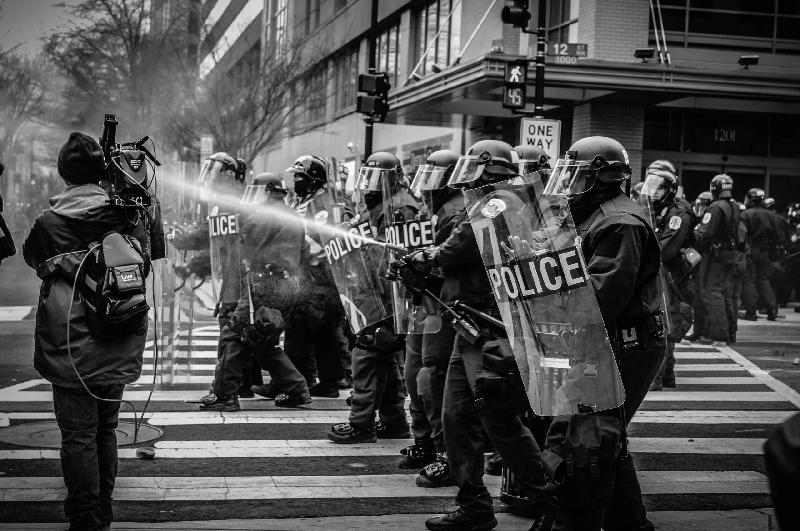Preparing for a long-term economic crisis is about more than ensuring you’ve got your food stocks and a way to protect yourself at home.
Major economic downturns in history, such as the Panic of 1873 and the Great Depression of the 1930s, posed challenges that evolved challenges over time.
With past prolonged financial crises as a bellwether, we decided to take a closer look at some of the terrifying truths arising from a long-term economic crisis.
Chronic Unemployment
Prolonged high unemployment is common during a prolonged economic crisis. This leaves a lot of families struggling to make ends meet and having to make drastic cutbacks. This hurts a lot of other sectors, including housing, consumer goods, and transportation.
Eventually, unemployment benefits run out. Families start losing their homes. This causes economic ripples that worsen other aspects of the financial crisis.
What You Can Do
It’s hard to keep yourself from ever losing your job in a long-term economic crisis. Setting aside three months’ worth of savings is a wise safety net if you do end up unemployed.
Increasing Petty Theft & Violent Crime
 Inflation, unemployment, and skyrocketing costs will only increase desperation on the streets. Ordinary people who wouldn’t turn to things like shoplifting, purse-snatching, or drug dealing will start to turn to illegal outlets to get by.
Inflation, unemployment, and skyrocketing costs will only increase desperation on the streets. Ordinary people who wouldn’t turn to things like shoplifting, purse-snatching, or drug dealing will start to turn to illegal outlets to get by.
Yet when things do go wrong these “Amateur Criminals” tend to lose their cool quickly and over-react. The intended victims of petty crimes become more likely to retaliate. Many will take measures to defend themselves.
In time home invasions will start to go up. Tensions will be running so high that it doesn’t take much to incite riots and looting.
Eventually, law enforcement numbers will start to decline. Police departments will start shuttering. This creates a double whammy escalating petty crimes and home invasions.
What You Can Do
Being smart about personal protection and increasing your home security measures are smart first steps. This includes carrying self-defense items on you when you go out while installing cameras, motion lights, and other deterrents around your property.
When you do go out, dress down to keep from looking like a target. Purse snatchers and pickpockets are more likely to target people who look like they have something to steal. Leave the designer-labeled clothes at home and keep a clutch wallet in an inside pocket.
Try to also take the curb appeal of your home down a notch. Even if you’re financially holding your own during an economic downturn, you want your home to look like you’re just getting by.
Riots and Civil Unrest Become Common
 When all the ingredients of a prolonged economic downturn stew together long enough, it creates a powder keg for civil unrest.
When all the ingredients of a prolonged economic downturn stew together long enough, it creates a powder keg for civil unrest.
People who are desperate and frustrated with the government’s response can be easily triggered. Once a riot starts it can spread far beyond the original area.
People use the protests to loot stores, small businesses, and sometimes even homes.
What You Can Do
If you own a small business, bars on windows and roll-up doors reduce the risks of looting, and help you control access. You also need to take home security to the max with bars on windows and heavy-duty steel doors with reinforced jams.
In times of civil unrest, cities can quickly become dangerous. When that happens, escaping to the wilderness might be your safest bet. But survival out there is about more than just basics; it requires mastering long-term skills.
That’s why I trust this guide. It’s not an ordinary survival book—it’s a practical resource that teaches the age-old wisdom of living off the land. So, when you’re planning your escape, make sure this handbook is in your backpack. It could be your key to staying safe when everything else goes wrong.
Government Austerity Will Go Too Far
Governments use austerity measures to weather a prolonged recession. This increases taxes and decreases spending can be modestly effective for several months.
Chronic inflation and unemployment eventually get to a point where austerity measures only add fuel to the fire. Any money borrowed and added to the national debt will also add to soaring inflation as austerity measures start to fail.
What You Can Do

Setting up smart tax shelters in advance will help you keep access to your money in the long term.
Health savings accounts, retirement IRAs, and municipal bonds make the most sense in these times.
Worsening Supply Chain Issues
Minor supply chain issues due to the cost of labor, materials, and transportation infrastructure issues are common during most economic downturns. Yet as an economic crisis draws on, there’s a tipping point where it becomes nearly impossible to get goods at a reasonable time and price.
Meanwhile demand for many consumer goods and luxury items continues to dwindle. While the cost of transporting those goods from nations like China becomes increasingly cost-prohibitive.
Eventually, overseas manufacturers will pull the plug on exporting goods. Focusing on their domestic markets to stay afloat. This will lead to massive shortages and/or massive delays in getting consumer goods.
What You Can Do
Take inventory of your essential devices and equipment. You need to be brutally honest in determining the things you need. Then make sure you have a duplicate or parts to repair it.
Most consumer devices aren’t truly essential. In time, you’ll eventually figure out how to replicate them in other ways.
It’s essentials like winter jackets, heaters, flashlights, batteries, and automotive parts that you need to have in stock. It’s these things that will maximize your self-reliance when you need it most!
Failure of Banks and Insurance Corporations
 Modern banks have far less liquid capital than they’re worth. During a long-term economic crisis, there will be an inevitable “Run on the Banks” that will cause financial institutions to become insolvent.
Modern banks have far less liquid capital than they’re worth. During a long-term economic crisis, there will be an inevitable “Run on the Banks” that will cause financial institutions to become insolvent.
This was a serious problem during the Great Depression that only made the problem worse.
When FDR took office, he declared a 4 day bank holiday to restore confidence in the financial system. In 2008 the FDIC rescued several banks and even seized Washington Mutual Bank.
This gives the impression that the Federal Government has the banking system covered for short, and even mid-term bank failures. Yet the financial landscape becomes a slippery slope as a long-term financial crisis drags on. There’s a limit to what the FDIC, US Federal Government, and world banks can do.
What You Can Do
Capping money you have invested in a single ban under the $250,000 FDIC limit is wise during a long-term economic crisis. You should also spread your savings throughout multiple banks just in case one fails.
Keep at least 3 months of income stashed in a safe at home. Keeping barter-worthy items such as excess ammunition, MREs and even fuel could also be wise. If multiple banks fail, the bartering might have more value than money.
Food Supply Insecurity
 A prolonged economic crisis will drive up fuel costs while simultaneously impacting farm subsidies. Along with inflation the cost to grow, harvest, and transport food can get insanely high.
A prolonged economic crisis will drive up fuel costs while simultaneously impacting farm subsidies. Along with inflation the cost to grow, harvest, and transport food can get insanely high.
Many low-priced staples like milk become prohibitively unprofitable for producers.
During the Great Depression, the price of milk was so low farmers poured it out to try to drive prices higher.
Today the Federal Government provides subsidies to dairy farmers to keep them afloat and control food production costs. Yet these subsidies can evaporate as austerity measures start to fail.
At some point, there’ll be a sharp spike in food prices becomes. When luxury foods like Brussels sprouts, and olive oil, start suddenly going up, staples like eggs, flour, sugar, and bread surge shortly after.
What You Can Do
A staple collection of dry goods, along with a big garden will help you stay self-sufficient. Even when grocery store costs start to skyrocket, you’ll still be able to feed everyone under your roof.
Keeping backyard chickens, dairy goats, and maybe even a few pigs will help. Being able to do things like grow your vegetables and bake your bread also means you have more money available to buy the things you can’t produce yourself.
Government Fails to Respond to Natural Disasters
A prolonged economic crisis can get to the point that the government simply doesn’t have the means to provide aid during a natural disaster. A hurricane, flood, or earthquake affects your area, with little response from government relief organizations.
Even a serious tornado, ice storm, or drought can have its aftereffects magnified during a major financial crisis. Understaffed first responders will struggle to handle tasks that normally would be handled by FEMA.
Utility companies will struggle to restore power and water. There’s also likely to be a food crisis when shipping infrastructure is compromised, and stores don’t have the electricity to maintain refrigeration.
What You Can Do
Be fully informed about the potential natural disasters that can affect your area. Then make a disaster survival plan with fallback contingencies.
This should include a plan for bugging in with a generator and your freshwater supplies. You should also have clear criteria for when it’s time to evacuate or move to a bug-out location.
Consider establishing a plan that coordinates with your neighbors. Helping them understand what they can do to be more self-sufficient reduces the chances of them needing your support in a natural disaster or pool supplies in a dire time!
via askaprepper




